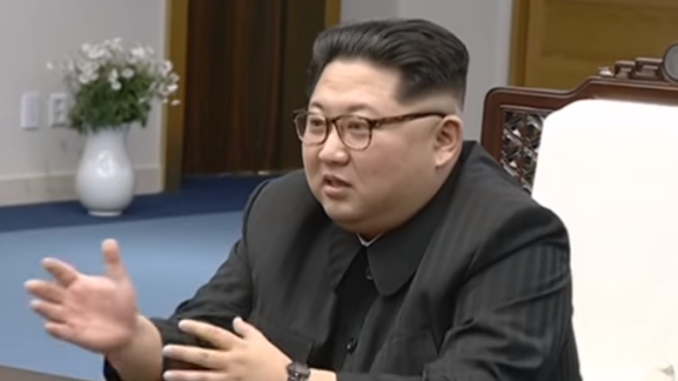
North Korea fired two ballistic missiles into the Sea of Japan at 7:04 and 7:23 this morning, prompting an immediate condemnation from the Japanese government. The launches follow two cruise missile firings on March 21. While many types of cruise missiles are not listed on the weapons restrictions faced by North Korea, ballistic missiles of any type violate the terms of a United Nations ban and associated sanctions on the dictatorship.
Both missiles flew a little over 260 miles before falling into the sea outside of Japanese waters. The timing of the launches – shortly after a similar double fire of cruise missiles and while the Biden administration is seeking to develop its position on North Korea – seem likely to be a deliberate provocation and test of the new President.
While Japan was quick to identify the style of launches – distinguishable mostly by the arcing trajectory of the missile’s flight path – the United States has been slow to positively describe them as ballistic. This suggests either a conciliatory or a cautious approach to North Korea, as opposed to an aggressive one.
Recent statements by nominees and officials suggest that the stance will be firmer than the permissive tone set by the Trump administration. Admiral John C. Aquilino, the nominee for United States Indo-Pacific Command, suggested in written answers to the Senate that “I believe that a robust force posture throughout the region to ensure the United States engages North Korea from a position of strength would be essential. Also, a senior administration official, in a press call documented by the White House, made clear their belief that the Trump efforts to cancel or minimize joint operations with South Korea were a bad idea and decreased deterrence on North Korea.
The true test of the response against North Korean provocation will likely come late next week. Following the visits by Secretary of Defense Lloyd Austin and Secretary of State Antony Blinken to South Korea and Japan earlier this month, the two nations have agreed to joint talks between security officials from the three countries. The focus is to be on North Korea policy, but any success may be useful in taking a role to heal the rift between two major allies.
I cannot state firmly enough that there is no easy answer to policy regarding North Korea. The situation has been thorny for more than a half century, and was dramatically worsened when Governor Bill Richardson and Secretary of State Madeleine Albright convinced President Clinton to accept nuclear reactors in that country. Following that decision, we have seen a stern and threating George W. Bush, an initially amiable but steadily more authoritative Barack Obama, and a supportive and supplicating Donald Trump. None of these made the situation better, and in the case of Trump the troubles became far worse. It is highly unlikely that Biden will do more than halt the damage which was being enacted by Trump – empowering Kim Jong Un, alienating both Japan and South Korea with shakedown attempts regarding military bases, and refusing to take any role in mitigating the widening gap between two strong regional allies. In this case, ending the continued destruction is all that should reasonably be expected.
